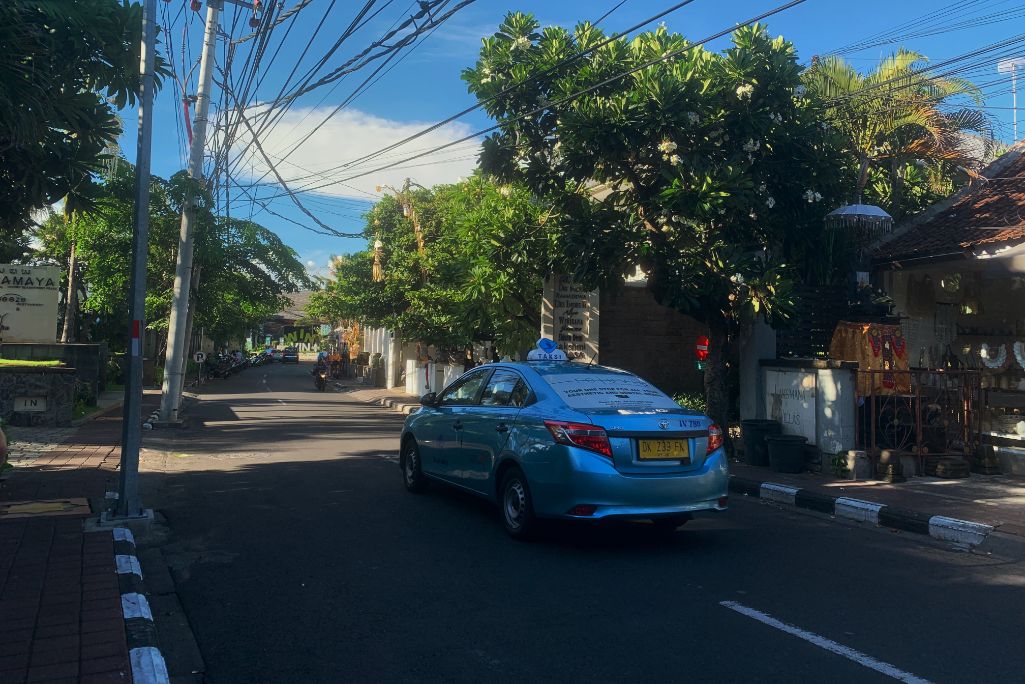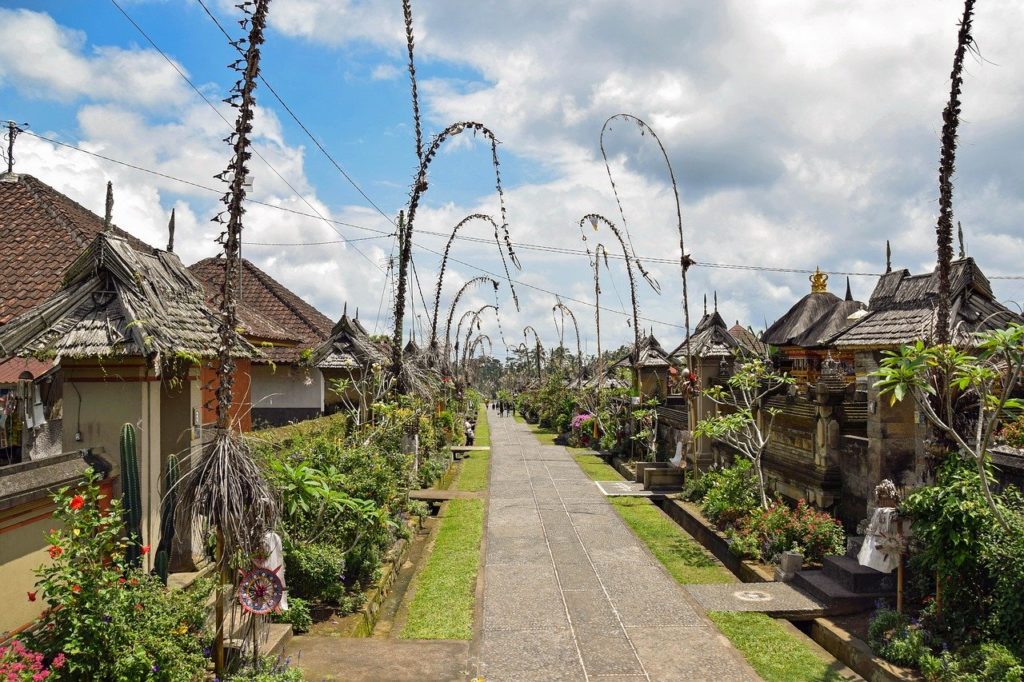What would you do if you were thousands of miles away from home when a pandemic hits? Would you pack your bags and get on the next flight home? Or would you consider staying where you are, hoping things will improve soon?
With many uncertainties surrounding COVID-19, be it doubts over the effectiveness of government response and the many unknowns about this viral disease, some who were in Bali as the COVID-19 crisis escalated around the globe have now chosen to remain on the island.
These tourists were drawn to the Island of the Gods for a myriad of reasons, and ended up staying for varied rationale, too. Some told Coconuts Bali that they visited Bali as part of their healing journey, while others have been forced to change plans with the increasing travel restrictions worldwide and landed in Bali as a result.
Christa Romano, a 32-year-old marketing strategist from the United States, has been on the road full-time. She was in Sri Lanka in mid-March and had planned on continuing her travels to Portugal, when she learned that US President Donald Trump had closed the American borders to Europeans.
Romano ended up canceling her Portugal trip and headed to Bali instead, where some of her good friends are based.
“At the time, I wasn’t sure if I would stay here, go back to the States or go to a different country. But in the end, I decided that staying in Bali with friends was my best and safest option,” Romano said.
It’s not an easy decision, Romano said, explaining how she had considered several factors, such as the US handling of the public health crisis, which didn’t make her feel like she would be returning to safety if she went home. She says she’s not particularly worried about whether or not she’ll ever be able to go back, but was more concerned about potentially infecting someone she loves if she returns.
At the time of publication, the United States has recorded over 216,000 confirmed cases of COVID-19.
“Knowing that even if I did go to the US I wouldn’t be able to live with any family members [as I’m] worried that I’d infect someone I love, made it an easier decision to stay,” she explained.
For Hannah Ooms, a 20-year-old Belgian, the decision to stay in Bali was for her own well-being.
“I know if I returned back to my country things would be worse. Being locked up in my house would make me feel not alive and would bring me down … It would not be healthy for myself,” Ooms said, adding that the scenery in Bali makes her feel much safer.
Belgium, meanwhile, has recorded nearly 14,000 confirmed cases of the novel coronavirus, which includes 828 deaths.
“Knowing that there will be enough food because of the farms makes me feel safe. The vibe outside is not chaotic but still fun, relaxed, loving,” Ooms explained.
Romano echoed a similar sentiment, highlighting the kindness, community-focused and widespread Hindu-belief system of Balinese people.
“[It] makes me feel like, even if disaster were to happen here, they would handle it better than maybe citizens of First World nations would,” she said.
To stay or to go

In the past couple of weeks, foreign missions in Indonesia have issued statements calling on their respective citizens to return home. Some have taken to providing direct assistance, including arranging chartered flights for their repatriation or finding available flights to help them return home.
Just in the past 10 days we helped nearly 150 Hungarian citizens to get home amidst flight cancellations and entry/transit restrictions. These 2 couples are already on their way home. #safejourney #travelhome #COVID19 pic.twitter.com/flaWIHhYff
— Judit Pach (@DubesHongaria) April 1, 2020
As another example, the British embassy in Indonesia on Monday said they had interacted with over 1,100 British nationals who have sought to leave the country, with most contact taking place through various social media platforms and messaging apps. A spokesman at the embassy told Coconuts Bali that there were about 8,000 British nationals in Bali about a week ago, but now that number has significantly decreased to a couple hundred, who they are “encouraging and helping” to leave the country.
However, some travelers are afraid of their health and safety should they return to their home countries.
Wedee Kao, a 31-year-old American travel blogger who has been traveling around Asia in the past year, felt that it was more risky to join the crowd in a panic attempt to get home. Kao decided to stay in Bali with his partner instead, keeping themselves up to date with the news and continuing to monitor the global situation with this pandemic.
“We made the executive decision that is the best for our safety to ourselves and others to minimize contact and exposure as much as possible,” Kao said.
Being from New York, one of the hardest-hit states in the US right now, Kao highlighted how it is “more dangerous to return,” especially when hospitals and the overall healthcare system there are already overwhelmed.
“We actually even called the embassy here, and there was no support whatsoever because we could never get through to a person on the phone,” Kao added.
It helps, Kao said, that the island didn’t panic even when they confirmed domestic cases of COVID-19, nor did they start hoarding supplies from supermarkets like the rest of the world.
As of this afternoon, Indonesia has confirmed 1,790 positive COVID-19 cases, including 170 deaths.

There’s also a strong sense of contributing to society among tourists, who feel like they are at least supporting the people of Bali as the latter struggle with the massive economic impact on tourism due to the coronavirus outbreak.
Danny Verpoorten, a 24-year-old stock trader from the Netherlands, noted how his government will provide support for his fellow countrymen amid the global economic downturn.
“The people here [in Bali] don’t have that … this way, for me, I can [help contribute]. I like to stimulate the economy a little bit here because the people here need it more than people in the Netherlands,” Verpoorten said.
Romano touched on something similar, too: “I also feel like the dollars I spend here in Bali can help their economy more than it can help the US.”
For the time being, these travelers are waiting things out. The uncertainties mean they can’t determine how long they will stay, though automatic stay permits for eligible foreigners granted by Indonesian immigration means they don’t have to worry about their visas just yet, at least until the situation improves.
Ooms said she’s keeping herself up to date with the latest information in Indonesia, but said she’ll “stay at home as long as possible and going outside if it’s necessary,” keeping in line with the global advisory to reduce social interactions to curb the spread.
Though concerned with Indonesia’s capacity to handle the health crisis, Kao also says that even if the public health emergency were to escalate, he considers that “the best we can do is continuing to self-isolate and stay away from crowds to flatten the curve.”
Indonesia has yet to impose a lockdown, meaning that though officials have advised people to stay at home, they are still at liberty to wander around, expected to at least keep their distance from each other. In Bali, restaurants remain open for dine-in and businesses are still hopeful of attracting any potential customers.
Verpoorten, for his part, considers the no-lockdown situation a good thing, as it means he can still go out. He says it’s one of his considerations to stay in Bali, as his own country, which recorded more than 13,600 cases thus far, has imposed a lockdown to get the coronavirus under control.
“I’m looking at it on a day-to-day basis basically, and if things really go wrong here and coronavirus [cases] increase exponentially … then I will decide [to go back home] if it’s still possible,” he said.
Should the COVID-19 crisis make it impossible for him to go back to the Netherlands, he plans to visit another Asian country where the situation is relatively better.
“I believe there’s always opportunities to go somewhere,” Verpoorten said, even if it takes longer than usual.” I just check the news everyday, I see what’s up.”


